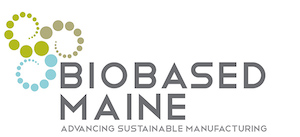Posts by Biobased Maine
What is Biobased and Why is it Important?
Biobased Maine is committed to the advancement of biobased technologies in Maine. But what does “biobased” mean? “Biobased” means that a product is made from renewable materials (like plants, trees, and other organic material). So why is this important? Is Biobased Maine committed to biobased materials because they are safer? Yes – materials that are derived from renewable sources are…
Read MoreJan 20 Amyris Announces New Renewable Industrial Solvents
Amyris, a global renewable products company that makes sustainable alternatives to traditional chemical products, recently announced a new industrial cleaning product that is renewable and is designed to replace traditional industrial solvents. Industrial solvents, also called degreasers, are needed to clean and degrease during manufacturing and other industrial processes (like during auto parts manufacturing). Industrial solvents are usually…
Read MoreJan 22 Biobased Maine to Attend Biobased and Sustainable Chemicals Conference
Biobased Maine’s Executive Director, Charlotte Mace, is headed to the 6th Annual Next Generation Bio-Based and Sustainable Chemicals Summit in New Orleans next month. Bio-based tech start-ups, brand owners, chemical companies, feedstock providers, financiers, strategic venture capitalists, OEMs and retailers from around the globe attend this conference to explore the rapidly growing global market for chemicals and materials…
Read MoreJan 8 Trends in Bioplastics
A recent article in Plastics Today highlights future trends in the bioplastics industry: “Stellar” Growth: experts forecast growth in global bioplastics production capacity of over 400% through 2018 Jobs – there will be more jobs in bioplastics (where there’s growth, there’s jobs) Biorefineries – similar to how oil refineries make numerous products from fossil fuels, biorefineries are…
Read MoreDec 22 Annual Biobased + Sustainable Chemicals Conference
Infocast, a leader in business intelligence and networking events in the biobased chemicals industry, is hosting the 6th Annual Next Generation Bio-Based & Sustainable Chemicals Summit, scheduled for February 3-5, 2014 in New Orleans. This conference will “provide attendees with unparalleled networking opportunities… Speakers from Seventh Generation, Stora Enso, BASF, Shaw Industries Inc., U.S. Department of Agriculture, U.S. Department of Energy,…
Read MoreJan 5 Franklin County Land Deal Maintains Working Forest + Habitat
5,800 acres in Franklin County will be preserved thanks to a recent deal between The Trust for Public Land and Linkletter Timberlands. A $1.28 million grant from the federal Forest Legacy program plus other funding is preserving stream frontage on Orbeton Stream (designated as habitat for endangered Atlantic salmon), 6 miles of the Maine Interconnected Trail System…
Read MoreJan 7 U.S. Advanced Biofuel Capacity Doubled Since 2011
In 2014, the U.S.’s advanced biofuel capacity increased to more than 800 million gallons, according to a report recently released by the national nonpartisan business group, Environmental Entrepreneurs (E2). The report, “E2 Advanced Biofuel Market Report 2014,” projects that the current capacity will double by 2017. Now I know what you’re thinking. Who cares about advanced biofuels…
Read MoreDec 15 Astronaut Waste to Rocket Fuel
Researchers at University of Florida have discovered a way to turn astronaut waste (yes, that kind) into rocket fuel. Instead of burning up the waste on re-entry (or dumping it on the moon’s surface), why not harness all of that valuable methane instead? This is exciting technology for NASA, as they consider longer-term space missions,…
Read MoreDec 4 Energy Department Announced $7m for Biomass Logistics
The U.S. Department of Energy wants to reduce the cost of delivering biomass to biorefineries and has funded up to $7 million for two projects. The State University of New York College of Environmental Science and Forestry will receive up to $3.5 million to reduce the delivered cost of woody biomass, better assess feedstock quality,…
Read MoreDec 1 U.S. Prioritizes Nanocellulose Commercialization
The U.S. Forest Service just released a report about bringing more nanocellulose to market. Cellulosic nanomaterials (or nanocellulose) are tiny structural building blocks derived from woody biomass (like trees). They have great potential for conversion to many new products. Increased nanocellulose production could lead to job growth and help restore some American forests. The report, Cellulose Nanomaterials…
Read More